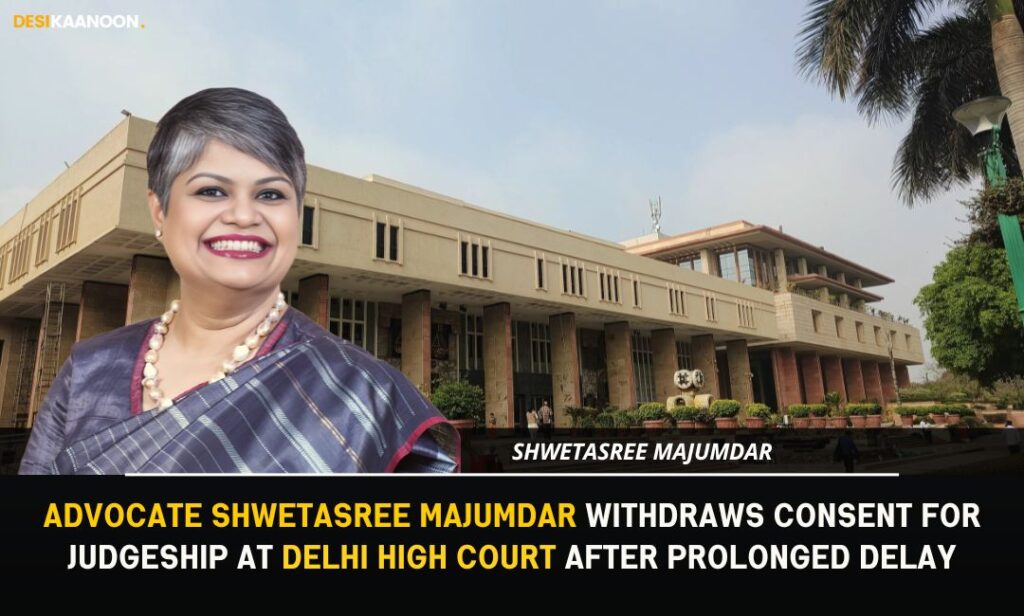Advocate Shwetasree Majumdar has withdrawn her consent for elevation to the Delhi High Court. Her name was recommended by the Supreme Court Collegium on 21st August 2024, but remained pending with the Central Government for nearly a year. The delay, being unexplained and prolonged, has led her to step away from the opportunity.
Majumdar is a well-known Intellectual Property expert and a first-generation lawyer from National Law School of India (NLSIU), Bangalore. Despite her distinguished legal career and sectoral expertise, her file was not cleared by the Central Government, even though other recommended candidates from the same list were appointed months ago, such as:
- Justice Tejas Karia – 14th February 2025.
- Justice Ajay Digpaul – 8th January 2025
- Justice Harish Vaidyanathan Shankar – 8th January 2025
Majumdar’s appointment, however, saw no progress.
Majumdar confirmed her withdrawal but did not elaborate on the reasons. Her decision has stirred sharp criticism in legal circles.
Senior advocate Sanjoy Ghose expressed his dissatisfaction with the system and called the development shameful. He pointed out that those who persuaded her to accept the judgeship did not stand by her during the delay. According to him, the lack of institutional support risks discouraging bright lawyers, especially first-generation and NLU graduates, from considering judicial appointments.
This is not an isolated case. Advocate Saurabh Kirpal’s appointment has also faced years of delay. His name, recommended by the Collegium, has not been approved by the Centre, allegedly due to his sexual orientation. These repeated delays in acting on Collegium proposals have raised concerns over transparency, fairness, and executive overreach.
While pending names like Majumdar’s remain unaddressed, the current Supreme Court Collegium, led by Chief Justice B.R. Gavai, recently recommended 39 new appointments to various High Courts. These included three Judicial Officers, Vinod Kumar, Madhu Jain, and Shail Jain for the Delhi High Court.
The Central Government’s continues silence on several older recommendations, coupled with its selective approvals, is leading to questions about the integrity of the appointments process. Many in the legal fraternity have urged the government to adopt a transparent and time-bound mechanism to process Collegium recommendations.
Instagram: Click here
LinkedIn: Click here
For Collaboration and Business: info.desikaanoon@gmail.com

